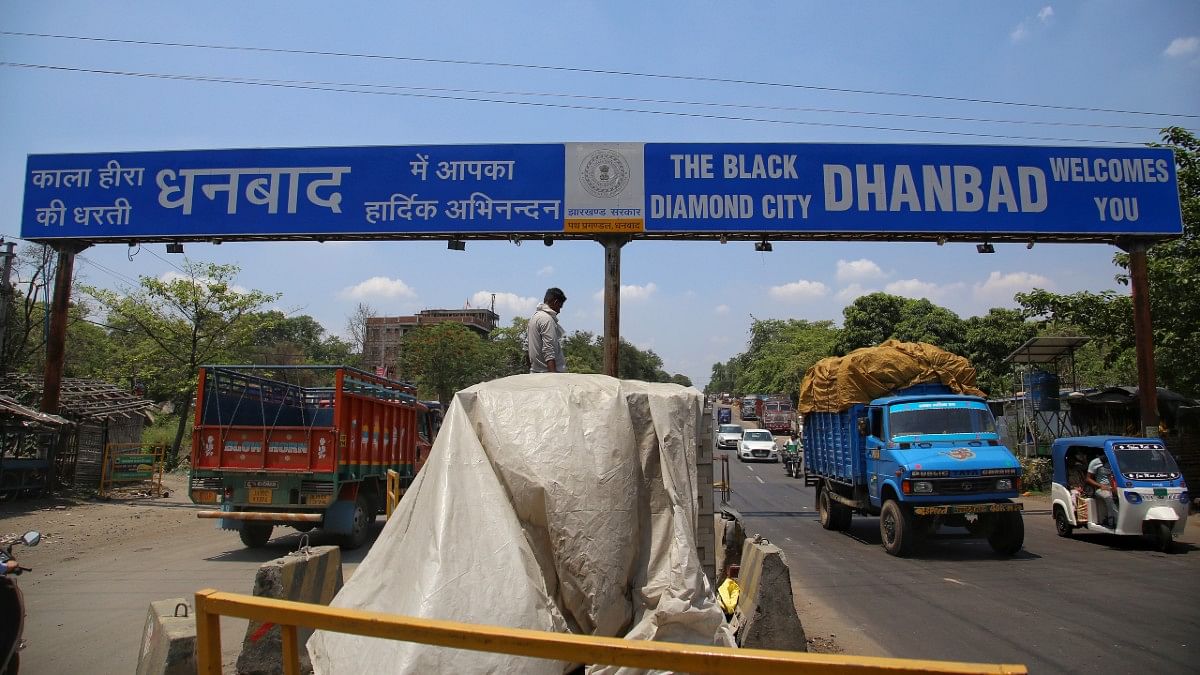According to sources, the coal mafias control every aspect of the mining process, manipulating everything from its unions and transport to coal auctions, and engaging in extortion, bribery, and outright theft. It even has certain BCCL officials working in cahoots, they say.
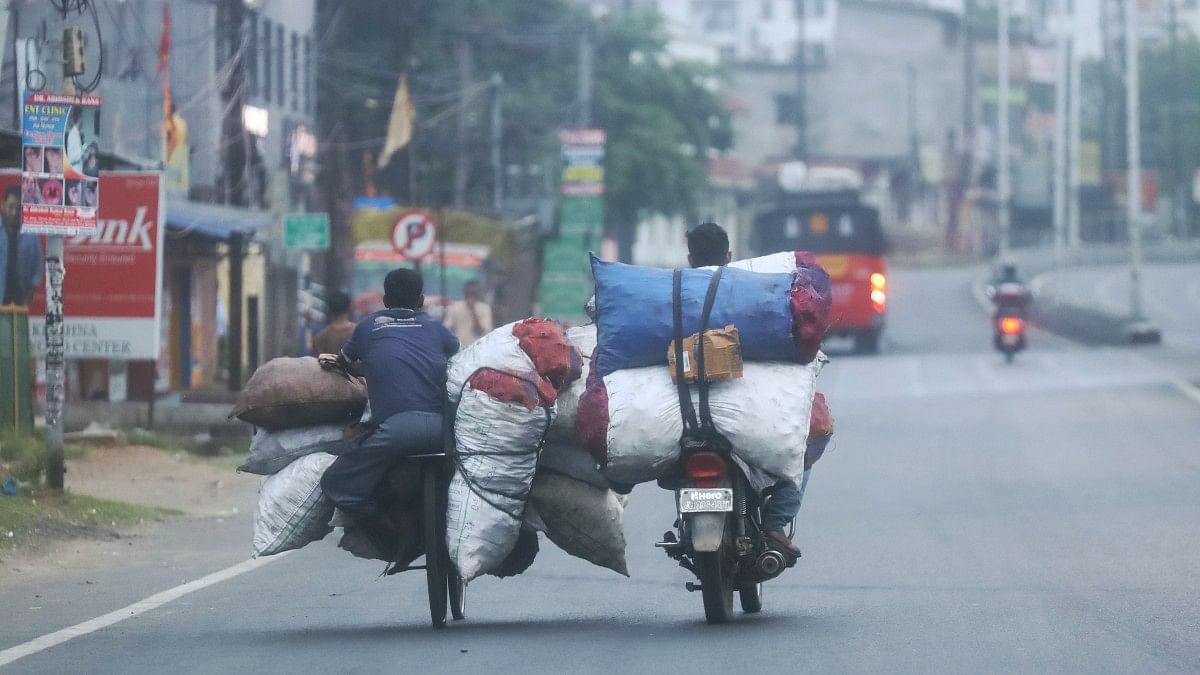
An official of the Directorate General of Mines Safety (DGMS) — the regulatory body for all mining and mineral processing operations in India — emphasised the existence of this “mafia” culture in almost all areas with rich natural reserves, whether sand or iron ore.
“Over the years, the culture has remained the same. It has become a part of the system now in Dhanbad,” this official added.
Also Read: Strongman Suryadeo Singh’s legacy to BJP’s Dhullu Mahto, Dhanbad politics remains in grip of crime
The ‘godfather’
This story goes back to early 1970s, when coal mines across the country were nationalised.
“It was a fight for supremacy of the workers, among other things,” a retired police officer from Dhanbad told ThePrint. Significantly, the poor working conditions in some of these private coal mines became one of the reasons to nationalise them.
Suryadeo Singh, who came to the city from Ballia in Uttar Pradesh, initially attached himself to then coal mafia leader B.P. Sinha, who was murdered in 1979.
Suryadeo, a suspect in the murder, wasted no time in replacing him and emerging as the ‘don’ of Dhanbad. A trade union leader, he controlled the coal business in the area and also became the MLA from Jharia — then in undivided Bihar — on a Janata Dal ticket, marking the beginning of the oft-quoted nexus of politicians and the mafia.
Coal mining in Dhanbad was suddenly being spoken about the world over but for all the wrong reasons. In its 1983 piece, ‘Badlands’ The Washington Post quoted people describing Suryadeo Singh as the “godfather” of Dhanbad’s syndicates.
Since his death in 1991, several people have been vying to take his place and while the dominant player changes frequently, the system rarely does.
A report in the local Hindi daily Prabhat Khabar on 22 November 2022 had claimed that Dhanbad loses Rs 10-15 crore of coal to the mafia every day.
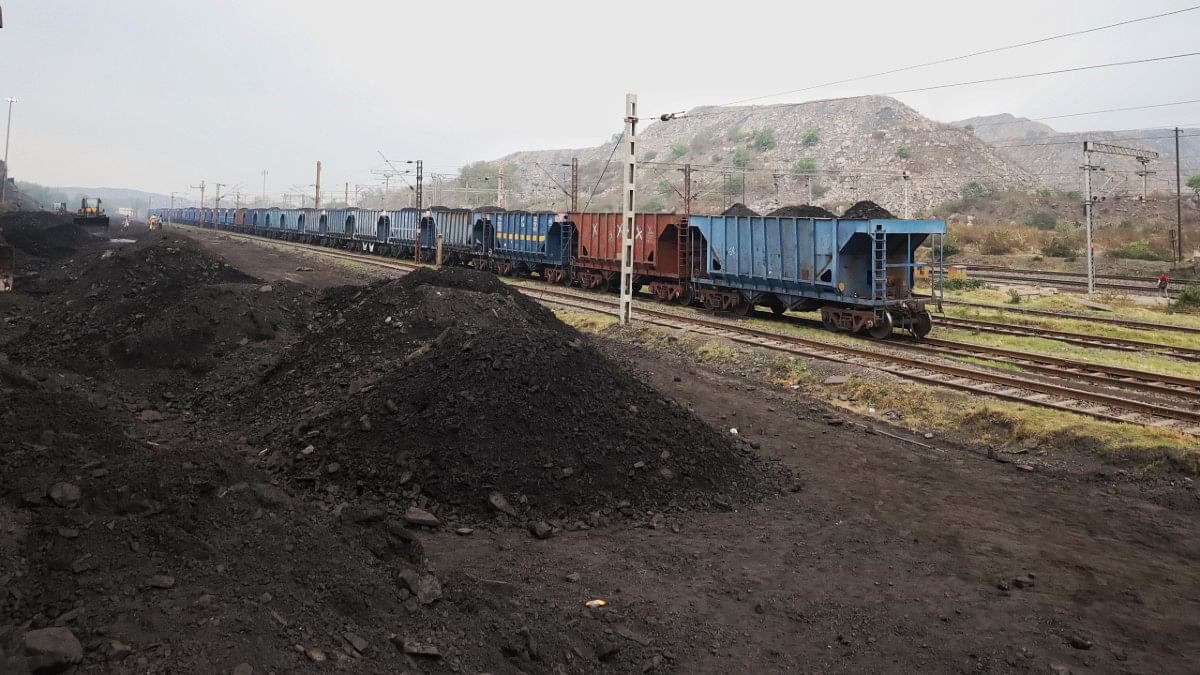
Singh’s family, now divided into two groups — one living in the palatial Singh Mansion, and another in ‘Raghukul’ — due to infighting, also functions as a power centre in the city.
Lately, however, the name of Dhullu Mahto, the Bharatiya Janata Party candidate from the Dhanbad Lok Sabha seat, has also emerged in the battle for supremacy in the mining belt.
Like Singh, Mahto was also a worker in the mines and rose up the ranks to be a union leader there. He has had over 50 FIRs against him with charges ranging from extortion, attempt to murder, usage of arms and explosives, to assault of government employees.
The first case against him dates back to March 1997 when he was booked under IPC provisions of rioting and attempted murder, among other things. Since then, he has had an FIR registered nearly every year.
The mines under the BCCL are grouped into 12 areas: Barora, Katras, PB, Lodna, Block II, Sijua, WJ, EJ, Govindpur, Kusunda, Bastacolla and CV. And it is these areas that have turned into bastions of different mafias that have come and gone over the years.
“The mafias control the production through manipulation of outsourcing tenders. They control most of the companies that apply for these tenders,” a Dhanbad-based social activist claimed.
Goonda tax
Under government rules, mining of the coal is outsourced and BCCL issues notices for its e-auction. However, no company that wins the bid can get the coal loaded in the trucks at the sites without paying the “goonda tax” — ransom money paid to the “don” of that colliery.
According to sources, this money — extorted in the form of a loading charge — is paid for every ton of coal loaded into the truck and is as high as Rs 1,200 for every ton in some areas, the sources said.
“If they don’t pay this goonda tax, the trucks stand empty at the site,” said the social activist quoted earlier.
This also puts the buyers of coal at risk. According to Coal India Limited’s e-auction scheme of 2022, as updated in March this year, the validity period to complete the lifting of coal by road is 45 days from the date of issue of sale or delivery order.
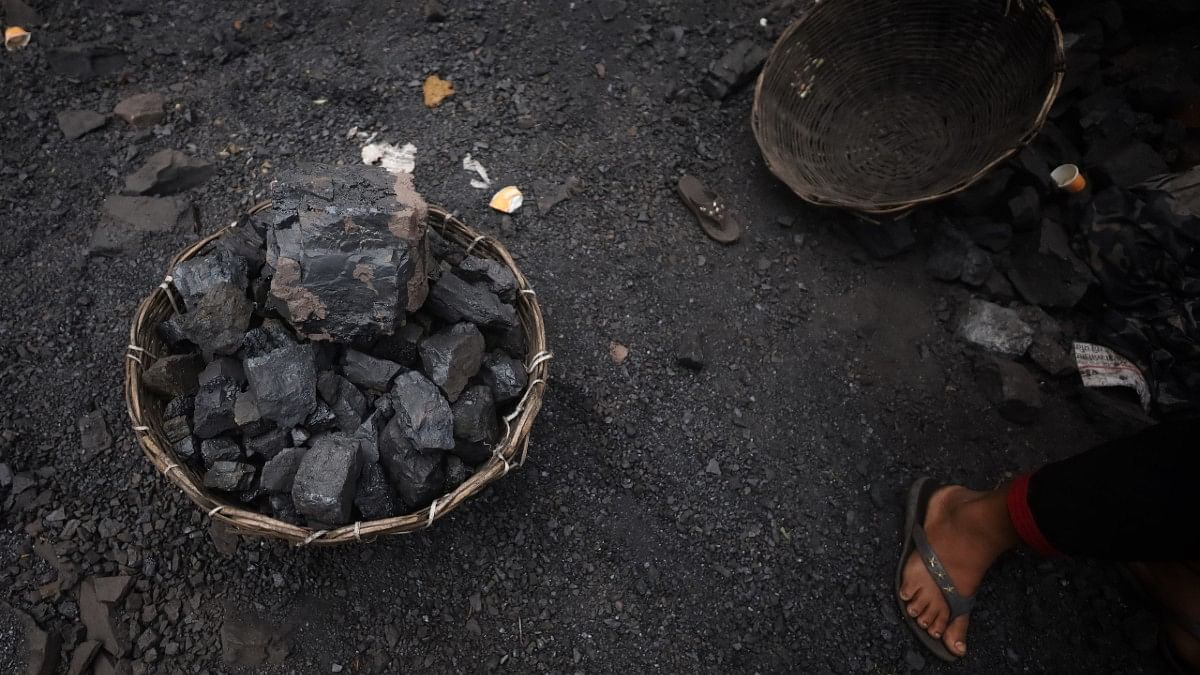
In 2013, India Today had in a report highlighted the central government’s attempt to thwart the mafia by offering Rs 30 crore worth of annual coal transport contracts from BCCL to ex-servicemen’s cooperatives sponsored by the director-general of resettlement.
However, Dhanbad’s then deputy commissioner Ram Sewak Sharma discovered that “the contractors had purchased the names of the ex-servicemen”, meaning that it was still going to the mafia.
The modus operandi of the mafias ensures their presence at every step of the process — from production to transport. “Everything happens with the authorities in the know,” the retired police officer said.
Also Read: Shibu Soren is sitting this election out, but ‘Guruji’s’ shadow looms large over Jharkhand politics
A parallel industry
At around 6 am, a middle-aged man dressed in black trousers and a white vest trudges along with a cycle in Dhanbad’s Damkara Barwa village. The cycle has been modified to attach a wide seat over its back tyre to allow more coal-filled gunny bags to be attached to the sides and in front of the bicycle.
He is a middle-man in an elaborate illegal mining racket — each morning for the last 25 years, he has coordinated with miners to pick up illegally extracted coal and take it to the next link in the chain, who then sells it to a factory or any other purchaser.
According to the DGMS official, this is a parallel industry. “Decades ago, the poor used to resort to stealing from other people. Now, they steal from these mines,” he told ThePrint.
“This keeps crime off the streets but sends it straight to the mines.”
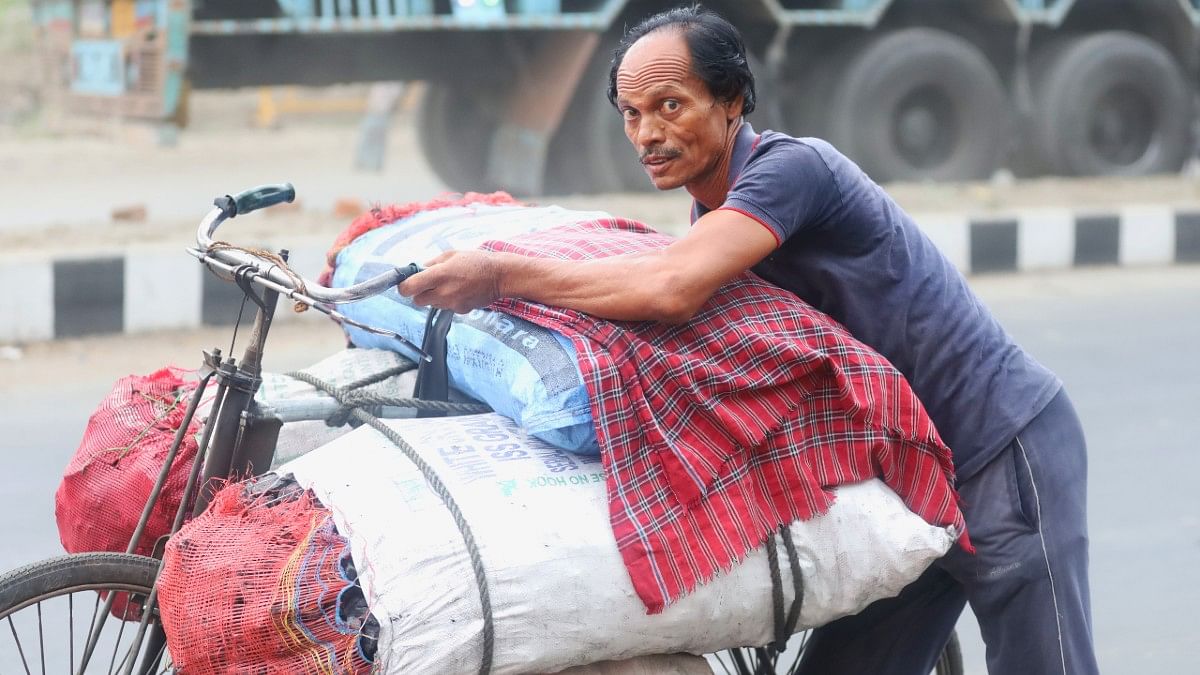
Coal is also frequently stolen from discontinued mine sites — a well-known and documented fact in the city. Minutes of an April 2022 meeting involving the city’s district magistrate-cum-deputy commissioner show that the officer voiced his concerns about “discontinued mine sites which later on in the absence of proper closure and security become easy spots prone to coal theft, which in turn leads to loss of revenue and national resources, and in furtherance is also responsible for funding in antisocial criminal activities within the district”.
Meanwhile, the illegal coal mining industry continues to claim lives — for instance, the collapse of one such mine in June 2023 killed at least three labourers and left several others trapped.
‘Close nexus’
In 2022, Dhanbad resident and advocate Bijay Kumar Jha approached the Jharkhand High Court citing newspaper reports on the death of those engaged in illegal mining. His petition, which ThePrint has seen, claims that BCCL produces 32 million tons of coal every year, but loses 10 million tons to theft.
This was not being done by individuals “but through an organised gang where cycle, motorcycle, small vehicles are being provided by the mafia so that coal may be taken out (from) closed mines and collected and in the night with the help of the police trucks of coal be transported to other states/anywhere as required”, the petition says.
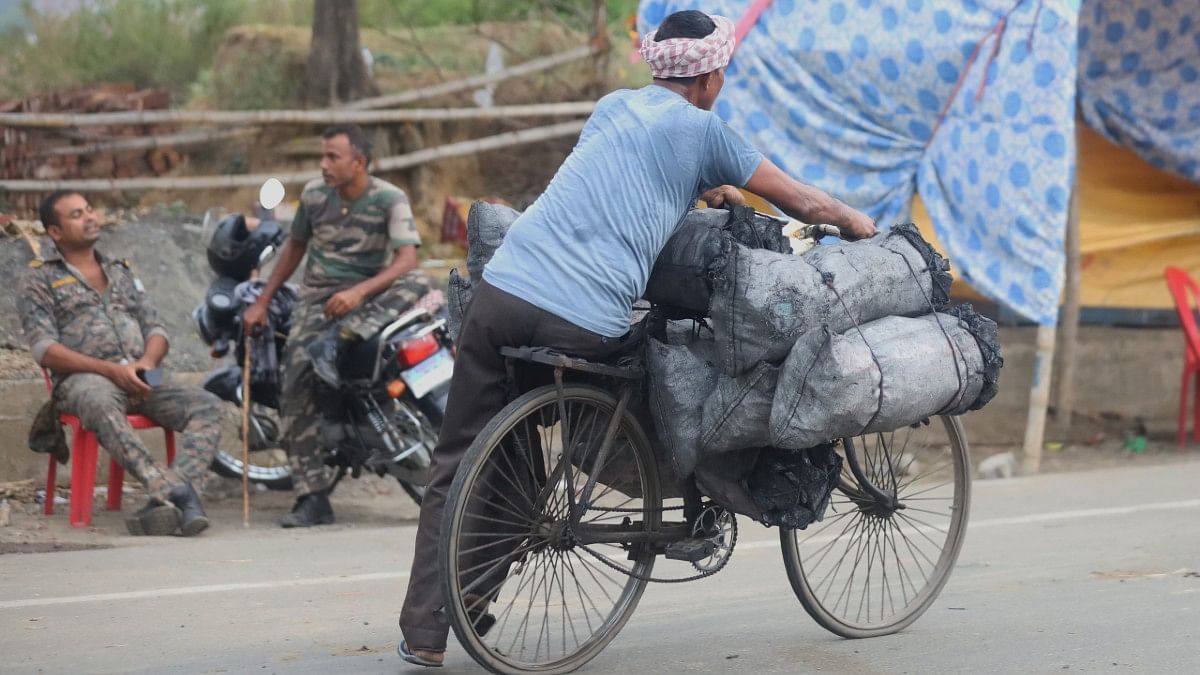
Alleging a “close nexus” between Coal India officials and the mafias while the CISF deployed at these sites “close their eyes when the theft of coal is going on”, the petitioner is demanding an inquiry into such deaths of people engaged in illegal mining and a special investigation team (SIT) “headed by an honest officer” to probe the theft of coal.
Allegations against BCCL officers isn’t new. For instance, back in 2019, the Central Bureau of Investigation (CBI) registered a case against senior BCCL officials for allegedly siphoning off Rs 22.16 crore through illegal payments routed through a Dhanbad-based company.
The petition also seeks a direction for the SSP Dhanbad to disclose the number of cases registered every year for coal theft and details of the gangs involved in this.
The petition is currently pending in the high court, which has asked the government authorities to file their response through an order passed on 24 April this year.
The gangs of Wasseypur
While Wasseypur is just one part of Dhanbad, the movie Gangs of Wasseypur drew stories from the entire city, its characters heavily drawing inspiration from real-life lore and incidents.
The social activist quoted earlier said that gangsters like Prince Khan continue to terrorise businessmen in Dhanbad, riding high on the power of muscle, money, and guns.
Prince Khan is the nephew of Faheem Khan — another convicted gangster from Wasseypur who inspired the character of Faisal Khan, played in the movie by actor Nawazuddin Siddiqui.
Prince Khan’s gang has been accused of making extortion calls to the city’s doctors and businessmen. Last December, doctors in the city went on an indefinite strike after one medical professional allegedly got a call from Prince Khan’s gang.
In April this year, Krishna Agarwal, president of the district’s Marwari Sammelan, filed an FIR against BJP leader Mahto and Prince Khan for threatening him. In his complaint, Agarwal, a former BJP leader, claimed that the threats came on the back of his opposition to Mahto’s candidature in the Lok Sabha polls.
This came months after the Interpol issued red and blue notices against Prince Khan, believed to be living in the Middle East.
While blue notices ask authorities to collect additional information about a person in relation to a criminal investigation, red notices request provisional arrest.
According to the social activist, Prince Khan has people doing reconnaissance for him in Dhanbad and is always on the lookout for new targets for extortion.
“You never know who will get killed and where,” he adds ominously.
(Edited by Uttara Ramaswamy)
Also Read: Kalpana Soren’s life was family time, yoga, music. Now it’s rallies, speeches, interviews

